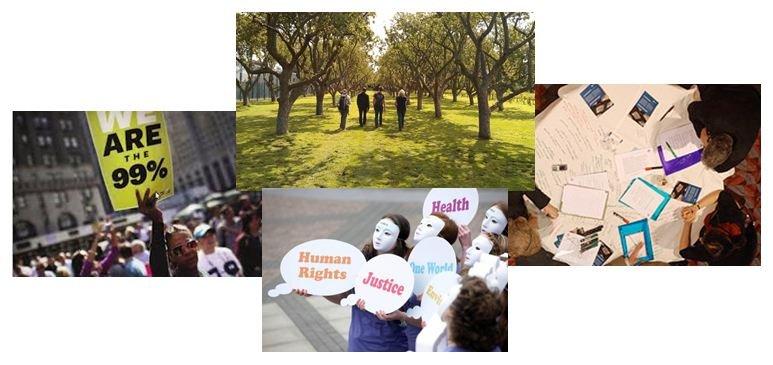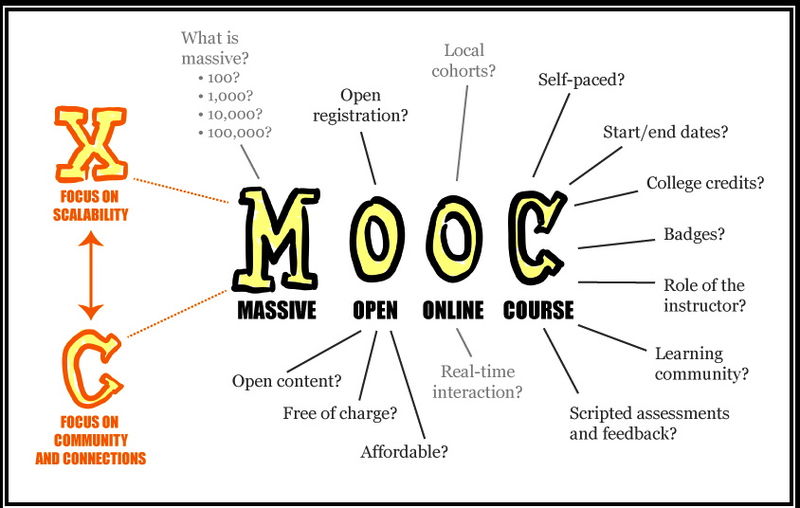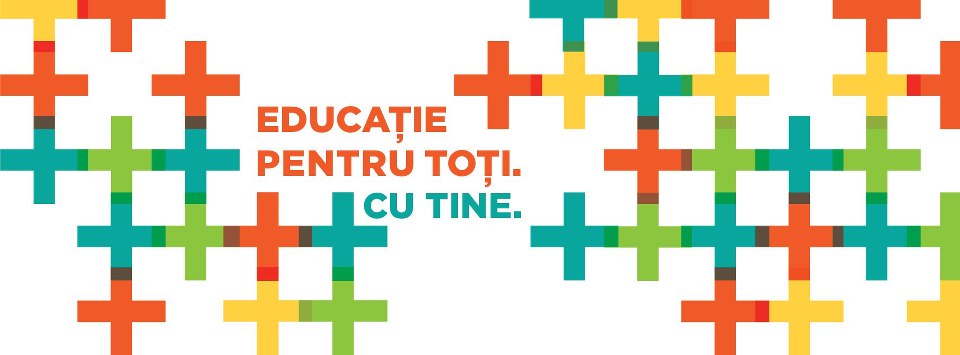Knowledge
Knowledge is a rich resource to have; it is also something that can and should be shared with others, thus opening and broadening people’s minds to new or alternative ways of thinking and acting. Regardless of working background, age or ethnicity, it must be recognised that everyone has a piece of knowledge or skill that could contribute in some way to society.
En savoir plus
Unfortunately, many aspects of modern Europe would appear to reject this notion, leaving many groups and individuals (homeless, migrants, young & elderly) feeling stigmatised or useless. The feeling of “belonging” is crucial to the well-being of a person; appreciating and putting to use that person’s knowledge or skill is one way in which he/she can feel a part of something.
This is exactly what the actions described below seek to achieve. Creating a means for “mutual learning and exchange”, whereby people in a community (on or offline) or neighbourhood can share knowledge, skills and practices, gives rise to increased opportunities for social inclusion, empathy building and improved well-being.
The power of knowledge cannot be underestimated.
 Pictures by The London Orchard Project, Alter Summit, Young Social Innovators
Pictures by The London Orchard Project, Alter Summit, Young Social Innovators
Below are listed examples of actions (in orange) and policies (in green) collected with regard to Knowledge.
Education
The role of Education is central to a person's development and well-being, particularly in childhood. Education provides the means to expand knowledge, learn valuable life skills, interact with others (peers, teachers, etc.) and much more besides. Despite governments continuing to stress the importance of quality education, many Europeans either do not have access to it or cannot afford it.
En savoir plus
UNESCO stipulates that "Education should be a means to empower children and adults alike to become active participants in the transformation of their societies." It also underlines the fact that learning should focus on the values, attitudes and behaviours which enable individuals to learn to live together in a world characterised by diversity and pluralism. The examples below are evidence of alternative ways in which civil society and other associations, with or without the help of public authorities, are doing just this.
Click Here For Examples
Auteur : Maria Jeliazkova -
Publié le : 2013-08-13 09:37 -

|
Improving the livelihood and social status of vulnerable people by establishing a social enterprise: the project aims to establish and develop a municipally-supported social enterprise in order to provide secured employment of disadvantaged people in Dimitrovgrad, thus improving their quality of life.
|
Auteur : Louise Hain -
Publié le : 2013-05-27 14:10 -

|
MOOCs (Massive Open Online Courses) are free non-degree online courses with open unlimited global enrollment to anyone who desires to learn, and regardless of their current educational level.
|
Auteur : Lorna Muddiman -
Publié le : 2013-04-29 15:05 -

|
We are a group of 40 volunteers are sharing our knowledge and literacy skills in schools with children who are at risk of early drop-out. We started out with mathematics, where children’s needs were greatest, but we are eager to expand to other courses and to non-formal educational activities. We now collaborate with 3 schools and about 90 children.
|
Aucun article.
Use of shared spaces - public/private
Click Here For Examples
Auteur : Lorna Muddiman -
Publié le : 2013-05-17 09:21 -

|
Community gardens provide fresh produce and plants as well as satisfying labour, neighbourhood improvement, sense of community and connection to the environment. They are publicly functioning in terms of ownership, access, and management, as well as typically owned in trust by local governments or not-for-profit associations.
|
Auteur : Lorna Muddiman -
Publié le : 2013-05-17 08:54 -

|
There are many financial, social and business-related reasons to join a co-working space. First, it is a means to promote flexibility and lower operating costs. Second, being surrounded by other independent workers with different skill-sets, networks and creative projects incubates creativity, innovation and meaningful business and social relationships. Third, it can decrease feelings of isolation often experienced by freelancers/small business owners as well as increase a sense of community and trust amongst peers.
|
Aucun article.
Building awareness
Click Here For Examples
Auteur : Lorna Muddiman -
Publié le : 2013-05-17 13:25 -

|
Awareness is the state or ability to perceive, to feel, or to be conscious of events, objects and other goings-on that might be affecting you, either directly or indirectly.
|
Auteur : Lorna Muddiman -
Publié le : 2013-05-17 12:50 -

|
Active citizenship is about being involved in your community, having your say and taking part in decisions that affect you. Above all, it’s about people making things happen. This often means taking the opportunity to be actively involved in tackling the things that need to change around you. As a result you will be able to improve the quality of life in your local community as well as inspire others, locally or further afield, to take action and make change a reality.
|
Auteur : Lorna Muddiman -
Publié le : 2013-05-17 09:45 -

|
Interactive workshops, in the context of creating awareness around certain topics (poverty, homosexuality, race), are extremely important for people of all ages, especially younger persons, since it helps to deepen understanding and knowledge as well as broaden people's minds by breaking down stereotypes and challenging issues considered "taboo" or "the norm".
|
Aucun article.
ALL examples of actions and policies
- Please note: ACTIONS (in orange) and POLICIES (in green)
Auteur : Claudia Coimbra -
Publié le : 2013-08-27 13:38 -

|
The Street Games project ("Jogos de Rua"), developed in Lisbon's Prodac neighbourhood, highlights the importance of urban space, large or small, as a source of unity among diverse cultures, social classes and generations.
|
Auteur : Claudia Coimbra -
Publié le : 2013-08-26 14:11 -

|
Projecto Fruta Feia ("Ugly Fruit") aims to minimise the social and environmental impact of food waste. The idea is to channel all rejected fruit and vegetable products to consumers that do not judge the quality of the product solely on appearances.
|
Auteur : Claudia Coimbra -
Publié le : 2013-08-26 13:42 -

|
To revitalise and energise Alfama and its communities, the A Linha project aims to develop levels of understanding and interaction as well as to create gardens and cultivation, organising shows and cultural activities that promote gastronomy, commerce, sport and leisure.
|
Auteur : Claudia Coimbra -
Publié le : 2013-08-26 10:36 -

|
Cozinha Popular ("People's Kitchen") da Mouraria is a social project designed to revitalise the multicultural community of Mouraria in Lisbon, promoting the sharing of experiences, building community and providing employment and access to food for those in need.
|
Auteur : Malou Weirich/Lorna Muddiman -
Publié le : 2013-08-22 09:09 -

|
Cold Barn farm is a centre for youth activity, which is dedicated to children and young people and making a difference in their lives. The allotment project started in 2006 when a group of young people showed an interest in growing their own vegetables.
|
Auteur : Malou Weirich /Lorna Muddiman -
Publié le : 2013-08-22 08:32 -

|
The Food Bank Garden was set up specifically to supply fresh produce for the Food Bank in Utrecht in the Netherlands.
|
Auteur : Malou Weirich/Lorna Muddiman -
Publié le : 2013-08-22 08:12 -

|
The Schweizer Familiengärtnerverband (Swiss leisure garden federation) today unifies approximately 375 leisure garden sites. In order to stimulate the co-operation with the associations and the members, the federation was divided into different regions, Bern among them.
|
Auteur : Malou Weirich/ Lorna Muddiman -
Publié le : 2013-08-21 12:33 -

|
In 2007, the first intercultural allotment garden of Braunschweig was inaugurated in the allotment garden site “Heideland”.
|
Auteur : Malou Weirich /Lorna Muddiman -
Publié le : 2013-08-21 09:21 -

|
The Mazargues allotment gardens, situated on the Joseph Aiguier site, are part of the city of Marseille’s historical heritage. The Gardens and the allotments greatly contribute to community life - facilitating a healthier environment, social inclusion, access to food and more...
|
Challenges
Aucun article.
Contribute an action to the theme
Contribute a Challenge to this theme
Click here to contribute a challenge
Pictures by The London Orchard Project, Alter Summit, Young Social Innovators


